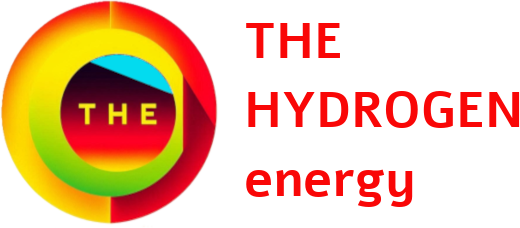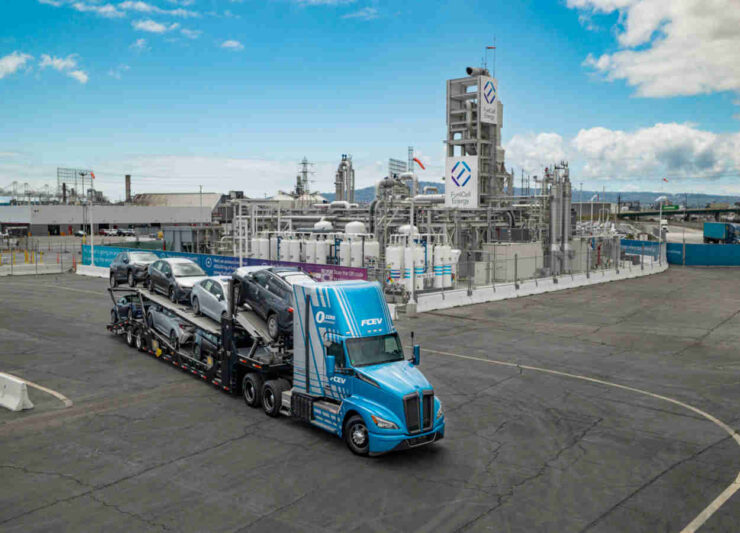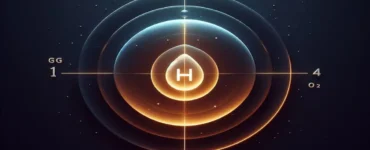A Tri-gen innovative system is located at Toyota Logistic Services (TLS), Port of Long Beach, California. Toyota’s largest North American vehicle processing facility that receives approximately 200,000 new Toyota and Lexus vehicles annually.
What is Tri-gen?
The Tri-gen system, owned and operated by FuelCell Energy, produces three products: renewable electricity, renewable hydrogen, and usable water. This is achieved using renewable biogas supplied through a pipeline to the facility. Biogas is produced from organic waste or sewage water.
Tri-gen is expected to help
- To reduce more than 9,000 tons of CO₂ emissions from the power grid each year
- To reduce diesel consumption by more than 420,000 gallons per year, using hydrogen-powered fuel cell Class 8 trucks in port operations
- To avoid more than six tons of grid NOx emissions
The clean energy system produces 2.3-megawatts of renewable electricity. Part of this will be utilized by TLS Long Beach to support its 100% operations at the port. This is the Toyota’s first logistics facility, powered by onsite generated, 100 percent renewable energy.
Surplus electricity generated is supplied to the local utility company, Southern California Edison. This is in accordance with the California Bioenergy Market Adjustment Tariff (BioMAT) program. Hence contributing a renewable, robust, and cost-effective baseload electricity generation resource to the power grid.
The new system can generate up to 1,400 gallons of water daily. This water is then repurposed for the car wash operations at TLS for vehicles arriving at the port prior to delivery to customers. This practice aids in decreasing the strain on local water supplies by saving around half a million gallons annually.
The high level technology behind
Renewable Biogas primarily consists of methane gas. And methane (from Natural gas) is used for the production of hydrogen commercially through a well known industry process called steam methane reforming (SMR) process.
Internal reforming using fuel cells is the cutting-edge technology that holds promise for direct hydrogen production from natural gas within the fuel cell itself. This is achieved by a special electrocatalyst embedded in the fuel electrode’s porous structure. The internally produced hydrogen and carbon monoxide (via in-situ steam reforming) are immediately consumed by the cell through electrochemical process generating clean electricity, water vapour at the output. Initial calculations suggest this technology offers very high conversion rates (potentially 100%) due to the continuous removal of hydrogen for direct power generation.
This fuel cell based technology is a highly efficient, combustion-free process that emits virtually no air pollutants.
Fuel cell type: High temperature, Carbonate Fuel Cell
Tri-gen system has the capacity to generate up to 1,200 kg of hydrogen per day. This hydrogen is used to fuel Toyota’s incoming light-duty fuel cell electric vehicle (FCEV) Mirai and also to supply hydrogen to the nearby heavy-duty hydrogen refueling station. This supports the logistics and drayage operations of TLS at the port.
Starting from January 1, 2024, California’s Advanced Clean Fleet Regulation will permit only zero-emission trucks to register as new drayage trucks. By the year 2035, it will be mandatory for all drayage trucks to be zero-emission. The Tri-gen platform is already supporting FCEV Class 8 trucks and is prepared to aid the ongoing transition to zero-emission trucks up until 2035.
The production of hydrogen can be adjusted based on the demand. After the construction of the Tri-gen system was completed last year, Toyota used the renewable hydrogen produced to fuel the first Toyota Mirai vehicles at TLS in January of this year. In April, the first heavy-duty FCEV Kenworth T680 Class 8 truck was fueled at the adjacent Shell HD filling station using renewable hydrogen produced by Tri-gen.
Statements from Toyota and FuelCell Energy
Chris Reynolds, Chief Administrative Officer, Toyota, said, “By utilizing only renewable hydrogen and electricity production, TLS Long Beach will blaze a trail for our company1. Working with FuelCell Energy, together we now have a world-class facility that will help Toyota achieve its carbon reduction efforts.”
FuelCell Energy CEO Jason Few said, “FuelCell Energy is committed to helping our customers surpass their clean energy objectives. By working with FuelCell Energy, Toyota is making a powerful statement that hydrogen-based energy is good for business, local communities, and the environment.”
This article is Copyright protected







Add comment